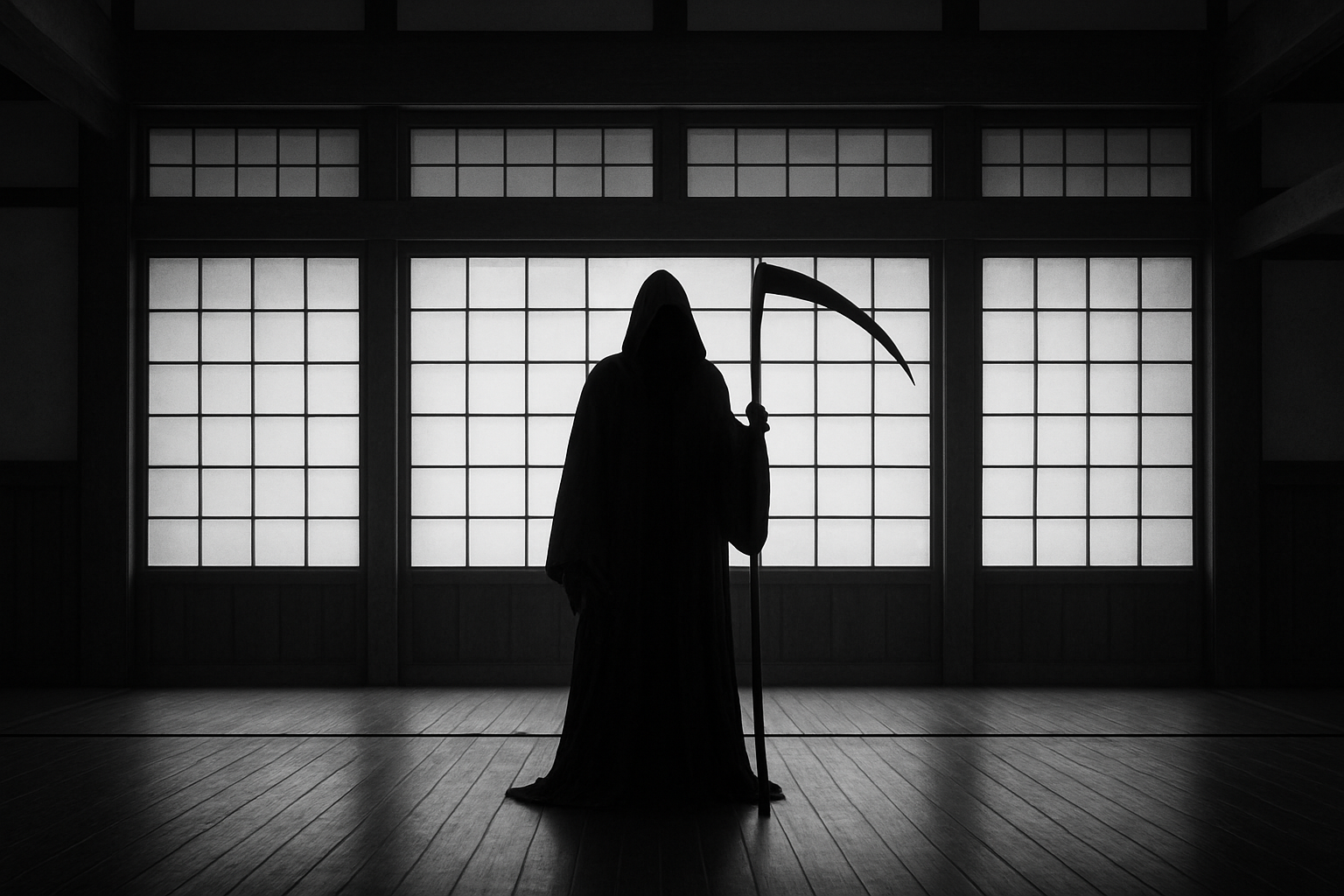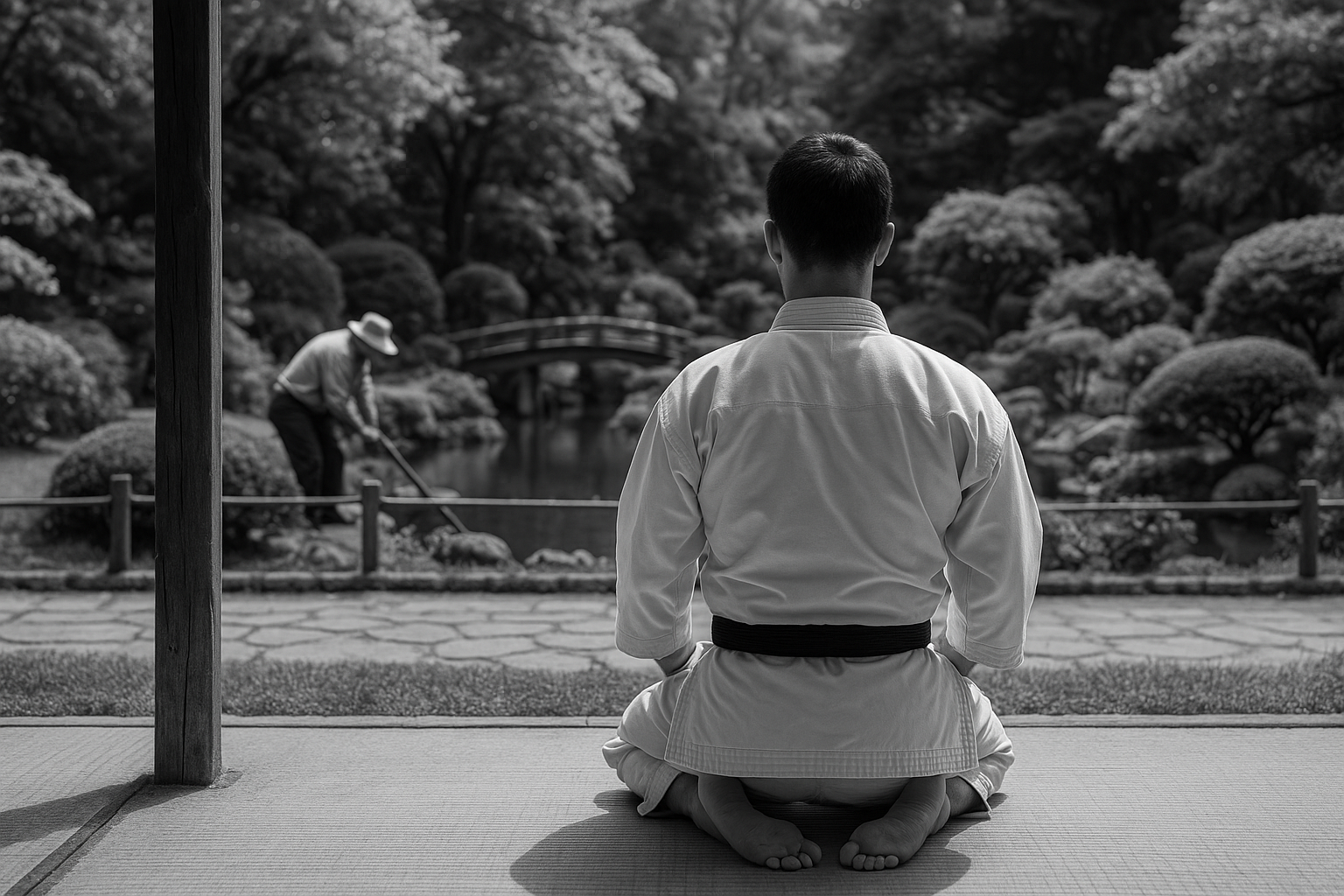
Notes from The Workshop
Essays, Insights & Reflections on the Art & Practice of Authentic Okinawan Karate & Kobujutsu

021 — Death in the Dōjō: The Paradox of Authentic Karate
In the dōjō, we face death quietly, honestly. Karate teaches decisive harm—"for life and death," as Miyagi said—but just as the dōjōkun directs us to practice earnestly, it also instructs us to take care of our health. Trust makes both of these possible: our partners place themselves in danger so we may develop our skills. These same motions that can injure also strengthen; the same breath used when striking also restores. Authentic Karate is a paradox—the study of destruction that preserves life—challenging us to accept our mortality and, in doing so, to live more fully and well.

020 — Kata & Counting: Its Architecture, Rhythm, and Meaning
Kata is not meant to be tallied step by step, yet too often it is reduced to numbers—ichi, ni, san—fracturing its rhythm and meaning. Counting has value as a teaching tool, but when it dominates, kata becomes a sequence of poses instead of living strategy in motion. True Karate emerges only when the count is set aside and kata is allowed to breathe.

019 — Winning Thoughts: Reflections On a Karate Tournament
Kata isn’t a string of poses—it’s movement with purpose. At a recent state tournament, I watched routines stretch past three minutes not from complexity, but from stillness. The staccato, frozen style betrayed kata’s intent: strategy in motion. When form eclipses function, both kata and sparring collapse into performance, not practice.

008 — Beneath the Belt: Karate and the Meaning of Rank
Belts and ranks are everywhere in modern karate—but where did they come from, and what do they really mean? In this article I explore the surprising origins of the ranking system, its benefits and pitfalls, and why true progress in karate is measured not by what’s around your waist—but by who you become.

007 — A Warrior in the Garden: True Pacifism, the Power of Choice, and the Monster Within
True pacifism is not weakness—it’s strength under control. In this essay, I explore what it really means to choose peace, drawing on martial wisdom, a powerful Japanese proverb, and Jordan Peterson’s provocative insight: "Be a monster—and learn to control it."
“No matter how you may excel in the art of Te, and in your scholastic endeavors, nothing is more important than your behavior and your humanity as observed in daily life.”
— Tei Junsoku (1663-1734)

